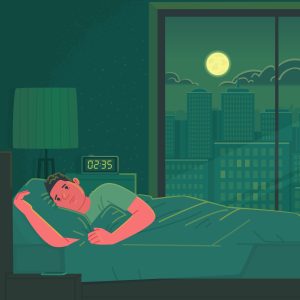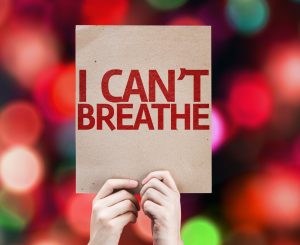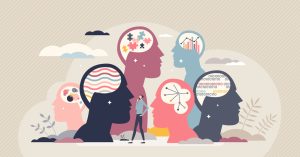Teaching children at a young age to cope with emotion and especially anger is crucial in child development. As social beings, individuals need to learn how to properly integrate into society with their emotions. The first place they feel and learn to manage emotion is in the home. Parents hence play a key role in teaching children how to better cope and control emotions. Fostering the child with love and others way to express frustration are key skills for future life. In addition, parents can teach their children best via example. Through emotional control and limited out bursts in the home, children can learn good and positive examples regarding anger.

The article, “6 Hacks to help your toddler deal with anger” from the Middleburg Observer reviews 6 ways one can help teach toddlers and young children better ways to express anger and intense emotion. The article states,
“Toddlers are adorable bundles of energy and curiosity, but they can also have quite a temper! Dealing with a tiny tot’s anger outbursts might seem like an overwhelming task, but fear not! With a sprinkle of patience, a dash of creativity, and a lot of love, you can help your little one navigate through these fiery emotions. So, let’s dive into six ways to help your toddler deal with anger.”
“6 Hacks to help your toddler deal with anger”. Middleburg Observer. (2023).
To review the entire article, please click here
Commentary
As parents and caregivers, it is important for us to understand the complex world of emotions that children experience. One of the most common emotions that children may struggle with is anger. Anger in kids can manifest in various ways and can have a significant impact on their emotional well-being. By understanding the underlying causes of anger and equipping ourselves with strategies to support them, we can help our children navigate their emotions more effectively.
The Impact of Anger on Children’s Emotional Well-being
Anger, when left unaddressed or misunderstood, can have detrimental effects on a child’s emotional well-being. It can affect their self-esteem, relationships with others, and overall mental health. Children who struggle with anger may feel overwhelmed, frustrated, and helpless. They may exhibit aggressive behaviors or withdraw from social interactions. It is crucial for us, as adults, to provide a safe and supportive environment where children can learn to manage their anger in healthy ways.
Common Triggers for Anger in Kids

Understanding the triggers that can lead to anger in children is essential in helping them manage their emotions. Some common triggers for anger in kids include:
- Frustration: Children may become angry when they encounter obstacles or challenges that they find difficult to overcome.
- Lack of control: Kids may feel angry when they perceive a loss of control in their lives or when their opinions and choices are disregarded.
- Fatigue or hunger: Being tired or hungry can make children more prone to anger and irritability.
- Unmet needs: When children’s basic needs, such as attention, affection, or security, are not met, they may express their anger.
- Environmental factors: External factors like noise, overcrowding, or chaotic situations can contribute to feelings of anger in children.
By identifying these triggers, we can help children recognize and manage their anger in a constructive manner.
Signs and Symptoms of Anger in Children
Recognizing the signs and symptoms of anger in children is crucial in supporting them effectively. Some common signs that a child may be experiencing anger include:
- Physical signs: Clenched fists, raised voice, flushed face, increased heart rate, and aggressive body language.
- Verbal expressions: Shouting, name-calling, and using aggressive language.
- Behavioral changes: Aggressive behaviors towards others or objects, throwing tantrums, and refusing to comply with rules or instructions.
- Withdrawal: Some children may withdraw and become silent when they are angry, avoiding eye contact or isolating themselves from others.
- Disruptive behaviors: Children may display disruptive behaviors such as hitting, kicking, or biting when they are angry.
By being attentive to these signs, we can intervene early and provide the necessary support to help children manage their anger effectively.
The Importance of Emotional Intelligence in Managing Anger
Emotional intelligence plays a crucial role in helping children manage their anger. It involves recognizing, understanding, and regulating emotions in oneself and others. By developing emotional intelligence, children can better understand their anger, its triggers, and their own emotional responses. Here are some strategies to help children develop emotional intelligence and effectively manage their anger:
- Emotion identification: Encourage children to identify and label their emotions, including anger. This helps them develop a vocabulary for expressing their feelings.
- Emotion regulation: Teach children techniques for calming themselves down when they feel angry, such as deep breathing exercises, counting to ten, or engaging in a calming activity like drawing or listening to music.
- Empathy: Help children develop empathy by encouraging them to consider others’ perspectives and feelings. This can help them understand the impact of their anger on others and develop more compassionate responses.
- Problem-solving: Teach children problem-solving skills to help them find constructive solutions to their anger triggers. Encourage them to brainstorm alternative ways of responding to situations that make them angry.
- Self-reflection: Encourage children to reflect on their anger episodes and identify patterns or triggers. This self-awareness can empower them to make conscious choices in managing their anger in the future.
By fostering emotional intelligence, we can equip our children with the necessary tools to effectively manage their anger and navigate challenging emotions.
Strategies for Supporting Angry Kids in Managing their Feelings
When faced with an angry child, it is essential to provide them with the support and guidance they need to manage their feelings in a healthy way. Here are some strategies to help support angry kids:
- Stay calm: As adults, it is crucial for us to model calm and composed behavior when dealing with an angry child. This helps create a safe space for them to express their emotions without fear of judgment or punishment.
- Active listening: Practice active listening by giving the child your full attention and letting them express their feelings without interruption. Reflect back their emotions to show that you understand and empathize with them.
- Validation: Validate the child’s feelings by acknowledging and accepting their anger. Let them know that it is okay to feel angry but emphasize the importance of expressing it in a respectful and non-harmful manner.
- Teach coping skills: Teach the child healthy coping skills to manage their anger, such as deep breathing, taking a break, or using positive self-talk. Encourage them to practice these skills regularly to build resilience.
- Offer alternatives: Help the child identify alternative ways to express their anger, such as using words to communicate their feelings or engaging in physical activities like running or jumping to release pent-up energy.
By implementing these strategies, we can create a supportive environment where angry kids feel heard, understood, and empowered to manage their emotions.
Teaching Anger Management Skills to Children

Teaching children effective anger management skills is a valuable investment in their emotional well-being. Here are some techniques to help children develop these skills:
- Identify triggers: Help children identify the specific situations or events that trigger their anger. Encourage them to keep a journal or use visual aids to track and analyze their anger triggers.
- Develop a calm-down plan: Work with the child to create a personalized calm-down plan that includes strategies they can use when they feel angry. This could include taking deep breaths, counting to ten, or using visualization techniques.
- Practice relaxation techniques: Teach children relaxation techniques such as progressive muscle relaxation, guided imagery, or mindfulness exercises. These techniques can help them reduce stress and manage anger more effectively.
- Role-play: Engage in role-playing scenarios with the child to help them practice alternative ways of responding to anger triggers. Encourage them to explore different strategies and discuss the outcomes.
- Reinforce positive behavior: Recognize and praise the child when they manage their anger effectively. Positive reinforcement can motivate them to continue practicing their anger management skills.
By consistently teaching and reinforcing these skills, we can empower children to become more aware of their anger and develop healthy strategies for managing it.
Creating a Supportive Environment for Angry Kids
In addition to teaching anger management skills, creating a supportive environment is crucial for helping angry kids manage their emotions. Here are some ways to foster a supportive environment:
- Open communication: Encourage open and honest communication within the family. Create a safe space where children feel comfortable expressing their emotions and discussing challenging situations without fear of judgment or criticism.
- Set clear boundaries: Establish clear and consistent boundaries for behavior. Clearly communicate expectations and consequences to help children understand the limits and feel secure.
- Model healthy coping strategies: Be a positive role model by demonstrating healthy ways of managing anger and stress. Children learn by observing, so it is important to showcase effective coping strategies and self-regulation techniques.
- Encourage physical activity: Engage children in physical activities to help them release pent-up energy and reduce anger. Encouraging regular exercise can have a positive impact on their overall emotional well-being.
- Promote self-care: Teach children the importance of self-care and provide opportunities for them to engage in activities that bring them joy and relaxation. This can include hobbies, creative outlets, or spending time in nature.
By creating a supportive environment, we can help angry kids feel understood, valued, and equipped to manage their emotions in healthy ways.
Seeking Professional Help for Anger Management in Children
In some cases, anger in children may persist despite our best efforts to support them. It is important to recognize when professional help may be necessary. Anger Management Consultant Professionals can help. Here are some signs that indicate the need for professional intervention:
- Persistent and intense anger: If a child’s anger seems excessive, intense, or lasts for extended periods, it may be a sign of underlying emotional or behavioral issues that require professional assessment.
- Aggressive behaviors: If a child’s anger escalates to physical aggression towards others or themselves, it is crucial to seek professional help immediately to ensure their safety and well-being.
- Impact on daily functioning: If a child’s anger significantly interferes with their daily life, relationships, or academic performance, it may be beneficial to consult with a mental health professional.
- Co-occurring difficulties: If a child’s anger is accompanied by other concerns such as depression, anxiety, or trauma, a comprehensive evaluation by a professional can help determine the best course of treatment.
Remember, seeking professional help is not a sign of failure but rather a proactive step towards helping your child develop healthy coping mechanisms and improve their overall well-being.
Conclusion: Empowering Angry Kids to Manage their Emotions

Supporting angry kids in managing their emotions requires patience, understanding, and a commitment to their well-being. By understanding the impact of anger on children’s emotional well-being, recognizing common triggers, and developing strategies to support them, we can empower them to navigate their emotions effectively. Teaching emotional intelligence, providing anger management skills, and creating a supportive environment are key components in helping angry kids develop healthy coping mechanisms. However, if a child’s anger persists or escalates, seeking professional help is crucial. By working together, we can unlock the emotional intelligence of angry kids and help them build a foundation for a healthier and happier future.
If you are struggling to support your child in managing their anger or if their anger is causing significant distress, it is important to seek professional help. Reach out to a mental health professional who specializes in working with children and adolescents. They can provide the guidance and support needed to address your child’s specific needs and help them develop effective coping strategies. Remember, you are not alone in this journey, and there is support available to empower you and your child.
Anger Management Consultants can help teach kids better management. Licensed Counselors can also give the needed support. Some counselors are also Anger Management Certified.
Please review AIHCP’s Anger Management Consulting Certification and see if it matches your academic and professional goals. The program is online and independent study and open to qualified professionals seeking a four year certification in Anger Management.
Additional Resources
“7 Ways to Help a Child Cope With Anger”. Morin, A, (2021). VeryWellFamily. Access here
“How to Deal With Disrespectful Adult Children”. Bernstein, J. (2020). Psychology Today. Access here
“How to Respond to an Angry Child”. Whitson, S. (2021). Psychology Today. Access here
“Anger Management for Kids: 14 Best Activities & Worksheets”. Sutton, J. (2021). PositivePsychology.Com. Access here






















